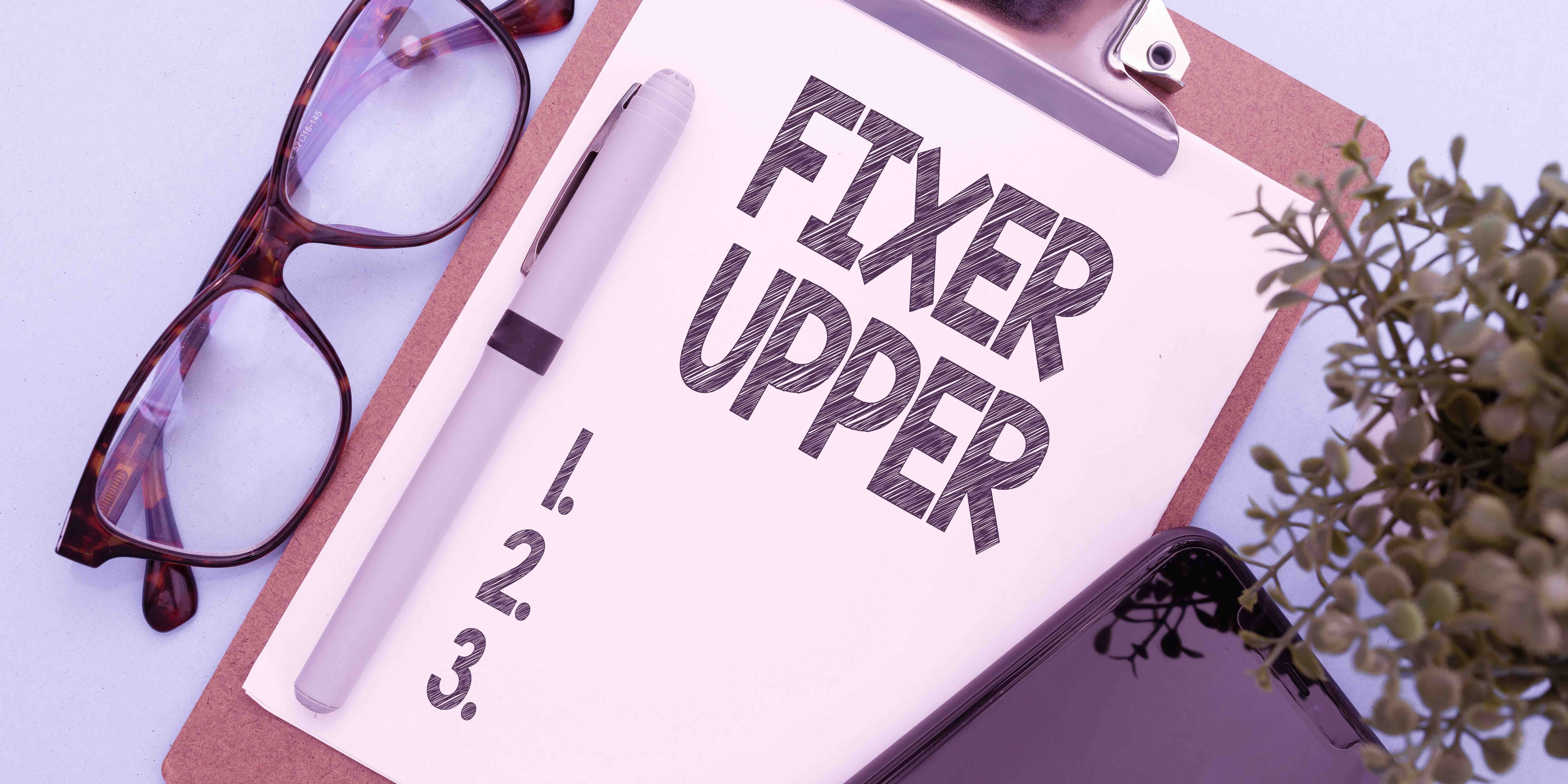How To Find Fixer-Upper Houses For Sale
One of the easiest ways to find a fixer-upper home and get a great deal is by working with a real estate agent. Your realtor will have the connections and insider knowledge to help you find the home you are looking for. Additionally, by accessing the multiple listing service (MLS), they can locate homes that are not publicly listed.
If you’re looking for the right fit, McNeill Real Estate Services will help you attain your goals while keeping your budget in mind to help you find the perfect match.
Remember that if you choose to buy a foreclosed home as your fixer-upper, you are purchasing the home as-is.
Buying A Fixer-Upper
If you’re considering purchasing a fixer-upper, remember the following tips.
1. Obtain a Home Inspection
A home inspection can cost you a couple of hundred dollars, but it’s non-negotiable if you want to buy a fixer-upper. A qualified home inspector will investigate your prospective home. Then they will provide a report outlining all the necessary repairs.
With a home inspection, you may know if the fixer-upper needs a new septic tank or plumbing or whether the foundation is cracked. This is the best way to avoid unpleasant surprises and help you construct a budget for priorities.
A home inspection is necessary when considering purchasing a home, especially if that home is a fixer-upper.
2. Estimate the Costs of Renovation
When you buy a fixer-upper house, you’ll want to ensure you can comfortably afford to turn it into the desired space. Make a list of all the projects you wish to do, including labor and materials prices.
You can do some online research and obtain price quotes from contractors to help you put together a realistic budget. This will help you decide whether the investment is worthwhile.
3. Permits Required
Usually, in most towns and cities, permits are necessary for the following:
• Structural work
• Window installation
• Room additions
• Sheds and garages
• Fences
• Plumbing and electrical work
Applying for a permit can be done in person or online at your municipal government office. You may need to provide detailed plans if your project is involved or complex.
4. What Can You Renovate Yourself?
Undoubtedly, DIY renovations and home improvements will save you a ton of cash. After all, contractors can be pricey – especially if you use them for every project.
While you may not install the plumbing or rewire the electrical system, you can apply a backsplash or paint without a contractor’s help.
5. Explore Fixer-Upper Loan Options
Two financing options can help you pay for the cost of your home and the renovation costs. Lenders do offer opportunities for loans that are specific to homes that need renovation or improvements.
6. Make A Smart Offer
Make an offer that balances what constitutes a good deal while considering the costs of repairs.
You can back out if an inspection reveals a significant problem or the home appraises for lower than you offered.
Fixer-Upper Pros and Cons
Here is a summary of some pros and cons of fixer-upper houses to keep in mind.
Pros
The purchase price is lower:
You will spend more on renovations, but the fixer-upper will have a lower list price.
Competition is less:
Usually, there is less competition for a home that is considered a fixer-upper and you are more likely to get a great price.
Customization of your fixer-upper:
The option to do whatever you want to your new fixer-upper home is attractive. For example, if you want a deck, you have the option to build one.
Quality control:
You are in charge of all of your renovations. You can choose the colors, contractors, materials, and anything else.
- You can make the home suit your exact needs and style.
- You may be able to purchase a larger home in a better neighborhood than you would be able to afford without renovations.
- You can make a good return on your investment when you sell the home if you make smart renovations.
Cons
Renovations that are expensive:
You may spend much more money on a fixer-upper than you intended.
Tricky budgeting:
You can estimate how much renovations will cost, but reaching an accurate figure is almost impossible. Unanticipated costs can crop up.
Unexpected issues:
If the fixer-upper is an older home, unforeseen problems almost always come up. Even if you did get a home inspection.
Construction that is long-term:
Living at the fixer-upper while you’re renovating means you may have to live in a construction zone for an extended period of time.
- The cost of the renovations can be expensive and take a long time to complete.
- You may have to deal with unexpected surprises, such as structural damage or plumbing problems, which can significantly increase your costs.
- You may not be able to get a loan if the home is in too poor condition.
Should I Buy A Fixer-Upper in NEO?
Your needs, preferences, lifestyle, and budget should be carefully considered before you decide to purchase a fixer-upper.
While a fixer-upper could be an excellent investment, it can become a money pit if you don’t correctly estimate renovations or if you skip the all-important home inspection.
Looking at comparable homes in the neighborhood will help ensure that your fixer-upper is worth the money.
The Katie McNeill Realty Team approach is designed to leverage our combined knowledge, experience and skills to provide the expertise and service our customers and clients deserve.
You can start if you’ve done your homework and are ready to finance a fixer-upper home. You can also call us at 440-796-5506 or use our Contact Us form and we’ll gladly be of assistance.







